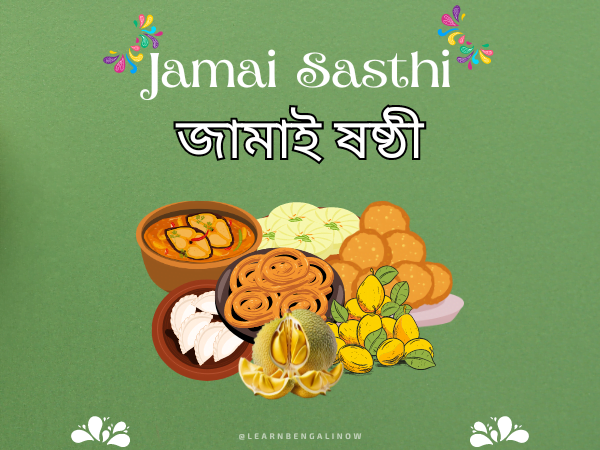Jamai Sasthi traditional Bengali festival
Jamai Sasthi is a traditional Bengali festival celebrated predominantly in the Indian state of West Bengal. The term “Jamai” means son-in-law, and “Sasthi” refers to the sixth day of the lunar fortnight, particularly in the month of Jyestha (May-June) according to the Bengali calendar.
Purpose and Significance: The festival is dedicated to honoring the son-in-law of a family. It symbolizes the bonding and strengthening of the relationship between a son-in-law and his in-laws, particularly his mother-in-law.
Rituals and Traditions:
Welcome Ceremony: The son-in-law is welcomed with traditional rituals. He often receives new clothes and gifts from his in-laws.
Feasting: A grand feast is prepared, featuring a variety of Bengali delicacies. Special dishes often include fish, meat, sweets, and other traditional Bengali foods.
Blessings: The mother-in-law performs rituals to bless her son-in-law. She applies a special mark (tika) on his forehead and ties a yellow thread around his wrist, symbolizing protection and good fortune.
Cultural Activities: Sometimes, cultural performances and games are organized to celebrate the occasion.
Cultural Context: The festival reflects the deep-rooted family values and respect for familial relationships in Bengali culture. It is a day of joy, togetherness, and the strengthening of family bonds.
Modern Celebrations: While traditionally observed with great fervor in rural areas, urban families also celebrate Jamai Sasthi, though sometimes with a modern twist. The essence of the festival remains the same, focusing on the warmth and respect shared between the families.
Jamai Sasthi is a unique festival that showcases the rich cultural heritage of Bengal and the importance placed on family ties and relationships.






